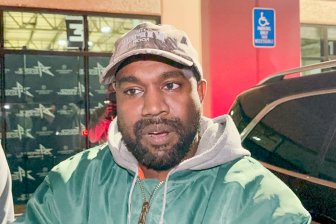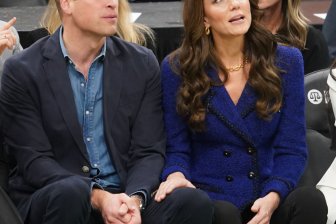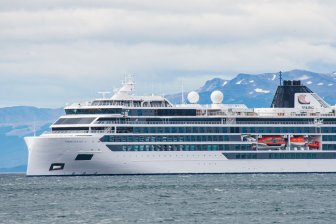Sofia Goggia picked up where she left off in Lake Louise, Alta.
The Italian ski racer’s victory in the season-opening World Cup Downhill on Friday was her fourth consecutive victory at the Banff National Park resort, including her sweep of last year’s three races.
“I’m very happy with the outcome and result, but I’m still not happy with my performance because I think I was a little too wild and dirty today,” Goggia told The Canadian Press.
She nevertheless posted a winning time of one minute 47.81 seconds.
Just six hundredths of a second separated first from third with reigning Olympic downhill champion Corinne Suter of Switzerland crossing the line four hundredths behind Goggia.
Austria’s Cornelia Huetter finished third.
“I was really tense and anxious when they came down because you never know. It’s a match of hundredths with this track, which lasts three kilometers,” said Goggia.
“To win by four hundredths of a second, what is that? It is countless.”
Another downhill is scheduled for Saturday, followed by Sunday’s super-G.
Goggia was just the third woman to complete a Lake Louise hat trick last season after Lindsey Vonn of the USA (2015, 2012, 2011) and Germany’s Katja Seizinger (1997).
READ MORE: Goggia dominates season-opening World Cup downhill in Lake Louise
After winning four of the first five women’s downhills in 2021-22, Goggia crashed in a super-G in Cortina, Italy, just two weeks after the Olympics.
Despite leg and knee injuries, the 30-year-old earned silver in Beijing’s downhill behind Suter, who finished second to Goggia in the overall downhill last season.
“We have to push each other to the limit and I’m excited for tomorrow,” Suter said on Friday.
“I made two or three small mistakes today, but I think if you go fast, it happens and it’s normal.”
Marie-Michele Gagnon of Lac Etechmin, Que., was disappointed to finish 24th.
“We did a lot of giant slalom practice to improve my technique and hopefully take the next step, so we did a lot less downhill practice,” Gagnon said.
“My feeling is a little bit off right now, as you can probably tell when I see myself going down. It’s just not as dialed in as it normally is.
“It’s a matter of just trying to find the right balance of attacking, but attacking in the right way.”
Stefanie Fleckenstein of Whistler, BC, was 39th. The 25-year-old skied as an independent on Friday. She is trying to work her way back to the national team.
“I’ve been independent for two years now,” Fleckenstein said. “It’s definitely difficult as a speed skier because the national teams get priority with a lot of practice.
“The goal is definitely to use my Nor Am spot at the World Cup this year and try to requalify, but it’s going to be a struggle.”
The season’s first race was held under cloudy skies and a temperature of -19 with a light breeze.
American ski star Mikaela Shiffrin, who won the downhill in 2017 and super-G in 2018 in Lake Louise, did not travel to Alberta. This season she is concentrating on slalom and giant slalom.
The world governing body of skiing and snowboarding, FIS, attempted to kick off the downhill season earlier this fall with cross-border men’s and women’s races starting in Zermatt, Switzerland and ending in Cervinia, Italy.
The men’s races Oct. 29-30 and women’s Nov. 5-6 were canceled due to poor snow conditions, so downhill’s season opener returned to its traditional Lake Louise venue.
However, the future of Lake Louise’s World Cup tournaments is uncertain.
Alpine Canada has only committed to holding a men’s sprint race in Western Canada with a location yet to be determined.
The introduction of World Cup women’s giant slalom in Mont-Tremblant, Que., in 2023, falling on the same traditional weekend as women’s speed races in Lake Louise, is a strike against Lake Louise retaining the only women’s downhill race in the North . America.
“I’m sorry because Lake Louise is a fairytale place,” Goggia said. “I really like it, but not just because I win. This is the last time for a hat-trick. We’ll see, but I’ve only (won) one so I’m happy with that.”
Each women’s world cup race in Lake Louise offers 132,000 Swiss francs (C$190,000) in prize money divided between first to 30th on a descending scale. The winner earns 50,000 (C$70,000) up to 550.

© 2022 The Canadian Press





